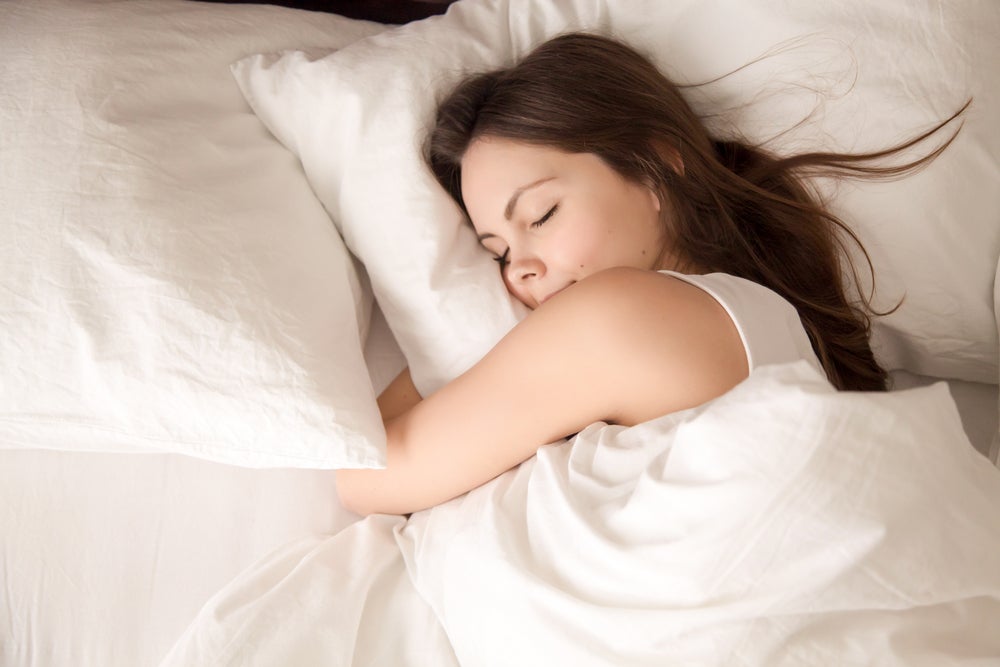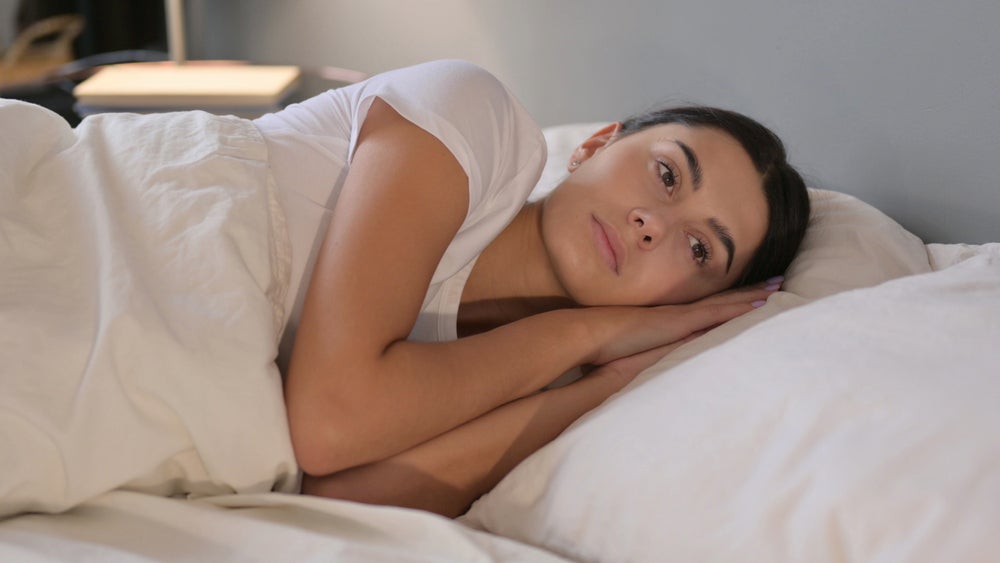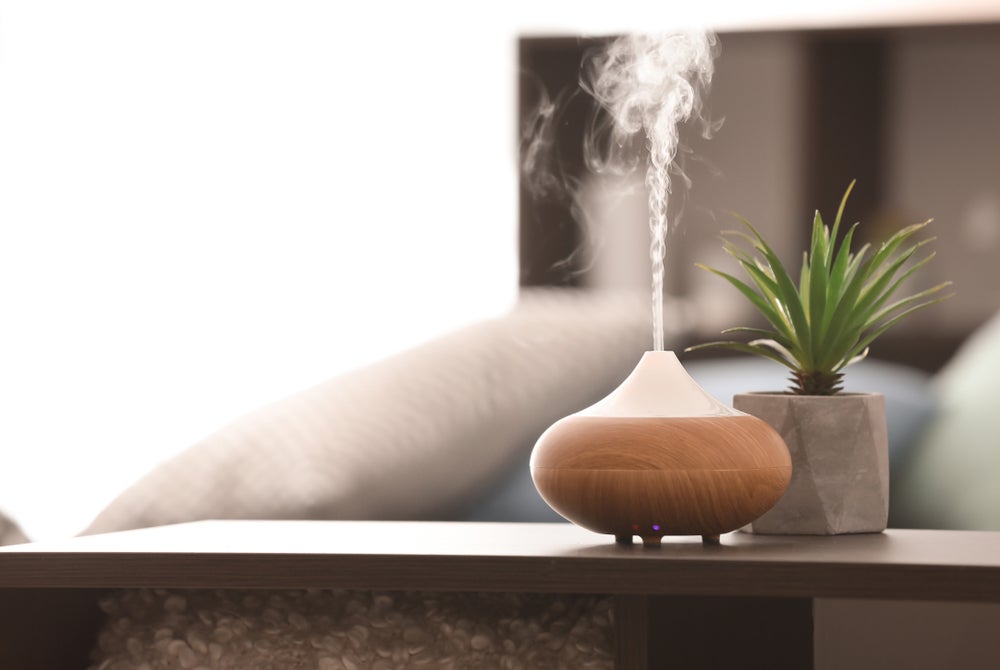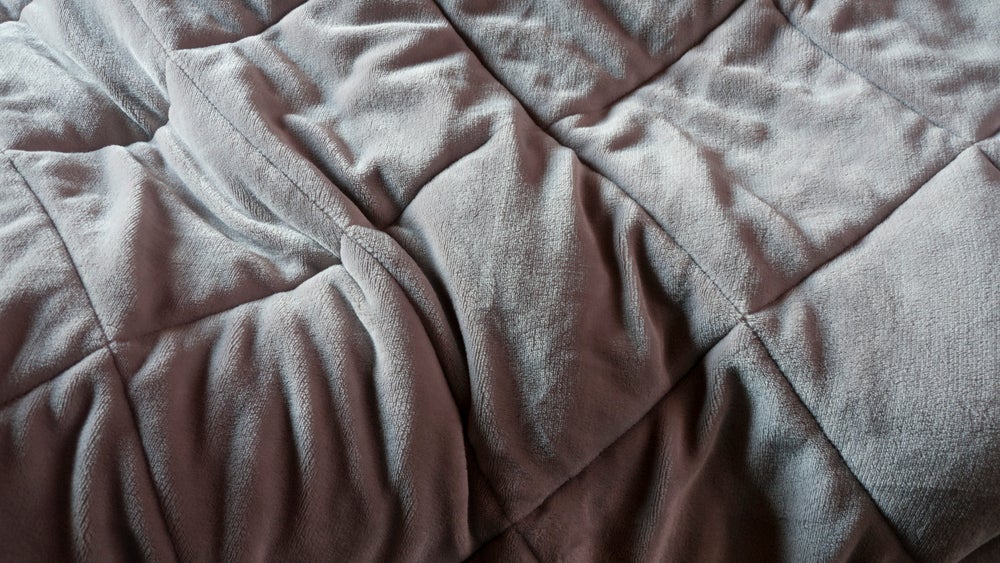Sleep is incredibly important to your body’s well-being, both mentally and physically. Since we spend about a third of our lives asleep, paying attention to the quality of this rest and supporting it as best we can is well worth the effort.
Unfortunately, there are times when sleep is evasive, especially when certain medications or other body stressors are present. Adderall is a stimulant medication often prescribed to help treat certain sensory and attention disorders. But it can make falling asleep a challenge. Below we have addressed this issue to help address how to fall asleep while taking Adderall.
The Importance of Sleep
As mentioned, sleep is a requirement for your well-being. It supports productivity, weight management, concentration, athletic performance, a healthy heart, social and emotional interactions and growth, the immune system, and even disorder and injury healing.
As you sleep you literally are repairing your body’s cellular makeup and allowing your brain to store and process information. It is vital to your health, and when your body becomes sleep deprived you are more at risk for illnesses, memory loss, health deterioration, and even diabetes.
What is Adderall?
Adderall is a prescription drug combination of both Amphetamine and dextroamphetamine to work as a stimulant and change the levels of certain natural chemicals in the brain. It is most commonly used to treat attention hyperactivity disorder (ADHD) and can help with focus, concentration, and control of certain behavioral problems.
By stimulating the central nervous system, it enhances the release of dopamine – but prevents the reuptake of it. This creates a hyper-alert stage that allows people to concentrate better. Dopamine is a naturally occurring chemical that sends signals from the brain to the body. It helps control body movements and function, as well as emotional responses.
It also is often used to treat sleep disorders, such as narcolepsy, a disorder that creates a situation in which the affected person falls asleep with no warning. Adderall can help them stay awake to help be more functional during the day, and for safety reasons.
Adderall should never be used without a prescription.
Adderall Side Effects and Sleep
As with any prescription medication, it comes with a list of possible side effects. Most are fairly minor, such as dry-mouth and headaches, but in some people, it can cause more serious problems. Anxiety, dizziness, nervousness, and the inability to sleep (insomnia) are all issues that can occur. Insomnia, in particular, has a tendency to be problematic, which can lead to a variety of other health issues if left untreated.
Tips to Fall Asleep on Adderall
Settling your mind and body to rest when you have a stimulant in your system can be a challenge. To help yourself fall asleep on Adderall, there are a few steps you can take to prepare yourself mentally to help drift off to sleep. Many of these techniques are also helpful for when ADHD symptoms are creating issues, or if you are experiencing insomnia due to stress and/or anxiety that causes your mind to work overtime.
Create a Routine
Having a specific bedtime and rising time can help keep your natural body rhythm. Our bodies already naturally recognize certain times of the day due to light. This is called circadian rhythm and we can influence how it works by having a regular routine. Use this to influence your mind and body towards a relaxing stage as you prepare for bed.
Take a Warm Bath or Shower
Warming your body can help release tensions and allow you to relax. This is a good first step towards getting ready for bed and can be easily incorporated into a regular routine. It also brings your blood flow towards the surface of your skin to release heat into the surrounding environment. This helps your body begin to cool off, which is ideal for a deeper sleep since your core body temperature drops through the night.
Practice Meditation or Yoga
Meditation and yoga both practice mindfulness and whole mind and body relaxation. Controlled breathing and body positioning release tensions, plus the focus of both is to help you distract from a racing mind and be more present at the moment.
Diffuse Essential Oils
There are quite a few essential oils that can be diffused to help with relaxation, focus, concentration, and sleep. Diffuse these oils for 20 to 30 minutes prior to bedtime to help you relax and unwind. Creating a habit of diffusion can also help trigger your mind to recognize that it is time to unwind.
Dedicate Quiet Time
In the hours leading up to bed create a quiet time in which you dim the lights, turn off all screens, meditate, practice yoga, diffuse oils, read, etc…The point is to avoid any sort of added stimulation. Sometimes even basic, non-strenuous household chores, such as folding laundry or putting up dishes can work towards helping you wind down.
Avoid Alcohol, Sugar, and Caffeine
Alcohol, sugar, and caffeine can work in various ways on your system, and if you are sensitive to any of them they may add to your restlessness and inability to sleep. They also act as a diuretic and will most likely cause you to wake in order to use the restroom.
Avoid Screens
Our body’s recognition of light as a reminder to wake can be influenced by the type of screens, and the amount of screen time, you are exposed to. When you spend time watching television, reading an e-reader, or scrolling on your phone, you may be sending signals to your brain to stay awake. Try to avoid all screens 1 to 2 hours before bed to allow your body to naturally sync with the time of day.
Try to Limit Smoking
Nicotine often makes it difficult to sleep, and most likely disrupts your sleep as your body begins to carve it through the night. Plus, it is horrible for your lungs.
Have a Regular Exercise Routine
Although you shouldn’t exercise too strenuously before bed, if you have a set routine during the day, studies show you are going to influence a better sleep. This is especially true for those who are already wired for energy. This outlet allows you to focus both mentally and physically, and provide a release.
Turn on White Noise
White noise, or even soft, repetitive music, can help lull the mind and block out outside stimulus that may be triggering an inability to sleep. This is very soothing and allows the brain to focus on a constant noise that creates a ‘sound cocoon’ for you to sleep within.
Use Transitional Objects
Although the use of a transitional object, such as a blanket or stuffed animal, makes sense for young children to help trigger them to relate it to a calming rest- the idea works just as well for adults. Choose a particular blanket or pillow to use as a comfort aid while relaxing and readying yourself for bed.
Invest in a Weighted Blanket
Weighted blankets are scientifically proven to help release serotonin in the brain to provide a calming sensation. Backed by years of study with sensory disorders, stress, anxiety, and insomnia, it is a product well worth considering to provide both physical, and mental relaxation.
Consider Supplements
There are certain supplements you can take that work with already existing hormones in your system to help influence sleep. Melatonin already exists in your body when it releases to promote rest. L-theanine is another option that provides a calming effect to reduce stress and influence relaxation. They don’t work for everyone, however, and always be sure to speak with your doctor to avoid possible medication interactions.
Speak With Your Doctor
If you still continue to struggle with sleep, there may be prescription drugs that can support a more restful night. Speak with your doctor to determine the best course of action, and always be sure to record any side effects you feel you may be experiencing.
Conclusion
If Adderall is a prescription your doctor has prescribed you, and you are struggling to sleep, changing your approach to rest may be the best place to start. Starting a routine that incorporates calming techniques and a preparation for what’s to come can be helpful in resetting your internal clock to recognize your own need to sleep.
Be sure to give yourself time to adjust to any new schedule and speak with your doctor about your struggles.
Photo credit: fizkes/Shutterstock; Zmaster/Shutterstock; Prostock-studio/Shutterstock; ImYanis/Shutterstock; Africa Studio/Shutterstock; Phovoir/Shutterstock; Tomas Urbelionis/Shutterstock; Jacob Lund/Shutterstock; Dario Pena/Shutterstock
Frequently Asked Questions
What is insomnia?
Insomnia is a sleep disorder experienced by people of all ages and is characterized by difficulty falling asleep, staying asleep, or getting good quality sleep. Insomnia happens for many reasons, even if you have the time and the right environment to sleep well. Insomnia can be triggered by many factors, including stress and aging, and can be especially prevalent if you are taking certain medications that can disrupt sleep such as Adderall, certain anti-depressants, and beta-blockers used to treat high blood pressure, arrhythmias, and angina. Frequent insomnia can interfere with your ability to properly perform daily activities and may make you feel sleepy during the day.
Will eating before bed disrupt my sleep?
While a small snack an hour before you go to bed is fine and probably won’t affect your sleep, eating a large meal can make having a good night’s sleep difficult. Firstly, what you eat is important. For example, cola or chocolate contain caffeine, which can keep you awake. Other foods such as tomato sauce, spicy or deep-fried food, can cause heartburn, indigestion or acid reflux, all of which can be triggered by eating and then lying down right after. Bigger meals take longer to digest than light snacks, and the fuller your stomach is, the longer it takes to break it all down. The probability of experiencing indigestion or acid reflux is greater, and both of these can make sleeping difficult. Eating quickly can also cause an upset stomach, putting a good night’s sleep farther out of reach.
Would changing my bed and mattress help me sleep better?
Sleeping on an old or lumpy mattress that doesn’t offer your body the right lumbar support can make it more difficult to fall asleep and also result in you waking up multiple times during the night. As well, if you are a “hot” sleeper, the type of mattress you have could be contributing to you feeling hot and sweaty during the night, which again could mean a lot of tossing and turning and wakeful moments. Do some research to find the right mattress for your body type, including a cool gel mattress if you are a hot sleeper, which may help you sleep better.
Would listening to music, the radio or a podcast make falling asleep easier?
If you lie in bed at night unable to fall asleep because you have so many thoughts running through your head keeping you awake, you’re not alone. The good news is, some experts say that listening to a podcast might distract you from your thoughts and help you focus on falling asleep, as long as what you are listening to isn't centered around heavy or stimulating issues. When it comes to music, some studies have found that music with a rhythm of about 60 beats a minute helps people fall asleep. So, as you are falling asleep, your heart rate begins to slow, and starts to move toward that 60-beats-per-minute range — in other words, slow music can “tune” your heartbeat toward the sleep zone.









